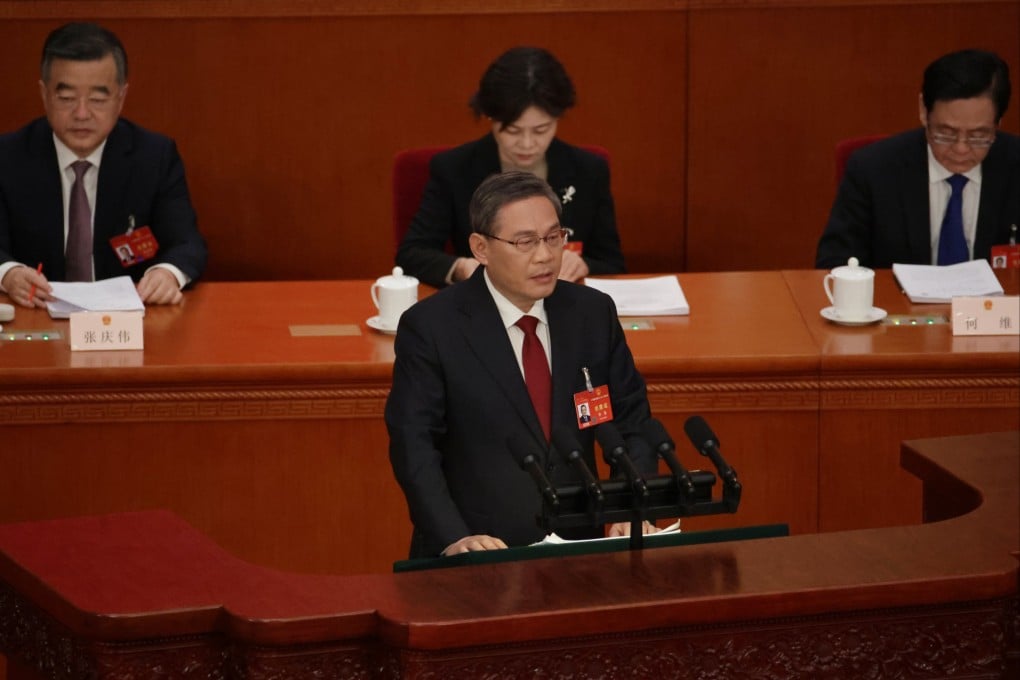Advertisement
Opinion | Focus on industrial policy holds great promise, and risk, for China’s economy
- Beijing must pay attention to the delicate balance between ambitious growth and the sustainable management of resources
- Pursuing economic growth via domestic industrial policy without due caution risks making inequality worse and exacerbating trade frictions with other countries
Reading Time:3 minutes
Why you can trust SCMP

On March 5, Premier Li Qiang laid out the country’s principal targets for economic development in the government’s work report. These explicitly articulated objectives underscore Beijing’s dedication to maintaining robust growth, emphasising stable employment, price stabilisation, improving public welfare and the cultivation of the low-carbon sector as critical for China’s economic landscape in 2024.
Advertisement
Two of Li’s statements deserve special attention: the mention of growth in personal income in step with economic growth, and the pursuit of a basic equilibrium in the balance of payments.
The claim that nominal per capita disposable income expanded in tandem with year-on-year GDP growth – presuming a stabilisation of consumer spending as a percentage of disposable income at around 66 per cent – suggests that consumption as a share of GDP is likely to remain unchanged in 2024.
The balance of payments equilibrium suggests that the current account surplus will be close to zero and the overall trade balance will probably show a shrinking surplus. China is still likely to witness large net exports in certain industries, but this will be counterbalanced by imports and other components of the balance of payments, such as financial flows and income transfers.
Considering these goals, investment is expected to play a crucial role in achieving the anticipated 5 per cent GDP growth for 2024. China’s investment-oriented strategy, though it has its flaws, appears fairly rational in the current circumstances.
Advertisement
Internally, a pervasive lack of confidence among Chinese citizens has stifled consumer spending. Externally, geopolitical competition, including the trade war with the US and heightened trade interventions by developed economies, is proving a considerable impediment to China’s trade goals.

Advertisement
